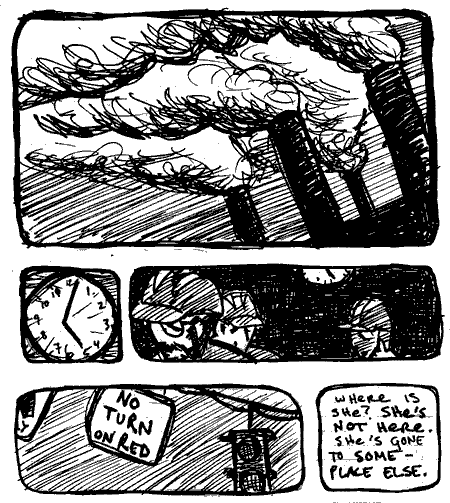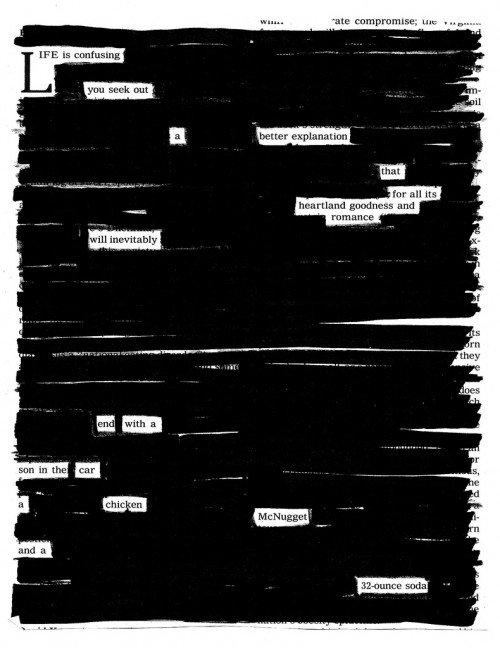
This is the beginning of a new comic…
- Diagram 6.2 is up.
- Stephen Wiltshire is an autistic man who can draw like crazy. I first read about him in Oliver Sacks’ ANTHROPOLOGIST ON MARS. In a recent documentary, they flew him in a helicopter over Rome, and he sat down afterwards and drew a panoramic view of the city.
- I’ve never read VICE MAGAZINE, but they have a comics issue coming up with a ton of great artists. Oh, and it’s free. Anybody know where you can get it in Cleveland?


